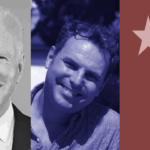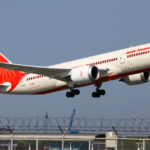A “Geopolitical Debacle”: ‘Dubious Information and Evidence’ Used Against Extradition Detainee

Australian citizen Dan Duggan has been held in prolonged isolation in the NSW prison system since October 2022.
The former US marine fighter pilot is currently detained in Lithgow’s maximum-security facility, as Washington seeks to extradite him over alleged breaches of US arms control law.
Duggan served in the US marines for 13 years ending in 2002. And since 2012, he’s been a citizen of this country, and he’s fathered six children with his Australian wife, Saffrine.
But it’s his participation in the once commonplace practice of training foreign nationals to fly that’s drawn the ire of the White House.
The US government has opened a 2017 grand jury indictment implicating Duggan in a conspiracy to export defence services in violation of a US-imposed arms embargo on China. And the Trump-era order implicates eight others associated with the Test Flying Academy of South Africa in the plot.
The proposition of the defence is that Duggan was partaking in the usual practice of some former defence personnel, which saw them teaching civilians the skills they learnt whilst in the military.
So, its client’s employment at one of the best flying schools on the planet, TFASA, was uncontroversial.
Indeed, aspects of the case have tended towards the extralegal. And what really took the cake on Wednesday was that the NSW Supreme Court ruled that an AFP attempt to facilitate a US restraining order on the sale of a property belonging to Duggan’s wife, Saffrine, has been effective.
US procures Australian assets
“This whole proceeds of crime process is devastating on so many levels and that comes out when Dan talks to me,” explained Cardinal Law principal Dr Glenn Kolomeitz, who’s been providing legal advice to the Duggans. “He feels like he and his family are constantly under attack on false grounds.”
“The United States, via our federal police, has thrown this restraint on the sale of his property,” the lawyer continued. “They’re also seeking to take control of that property via an application from the commissioner of the federal police, based again on very dubious information and evidence.”
The foreign restraining order issued last month provides for the seizure of the Saddleback Mountain property in southern NSW, which the Duggans are building a house upon.
Saffrine, who purchased the property three years prior to marrying Dan, has been trying to sell it to cover court costs. Following the ruling on Wednesday, she said that the order’s placed “a dark cloud” over the future of her six children, and the campaign to free her husband.
According to Kolomeitz, the grand jury indictment outlines that the jurors had been persuaded that the money used in the sale was allegedly earnt via training Chinese nationals in South Africa circa 2010 to 2012. But the document stipulates the property should be forfeited only after a conviction.
Despite this, the AFP applied a seizure order on 31 October, which would enable the taking of the NSW south coast property. Duggan’s lawyers had been fighting the order in the Supreme Court, and an officer had admitted that had provided false evidence that asserted Dan owned the property.
The international lawyer told Sydney Criminal Lawyers that the suggestion that proceeds of crime were used in the property purchase is disputed, and further Dan doesn’t even own the place.
“Saff bought it,” he explained. “It’s half-finished and now they want to sell it half-finished, so Saff and the children can have some sort of future and to fund Dan’s defence.”
Indiscretions relating to the case
After its client has not only been remanded on behalf of the White House since October last year, but he’s also been held in prolonged isolation, which the UN considers to be a form of torture that should be prohibited, Duggan’s legal team were back in court last month seeking documentation.
The court appearance had originally been slated to deliberate upon the question of extradition, however the defence team has yet again seen a further adjournment called, as it attempts to obtain classified documents belonging to Defence and the Inspector General of Intelligence and Security.
Several NSW Local Court adjournments have been called this year as defence lawyers have sought documents that the authorities have been refusing to hand over. These have included files relating to an inquiry defence minister Richard Marles conducted into Australian troops selling their services.
The IGIS has also been conducting an inquiry into whether Duggan was lured back to Australia from China, where he’d been managing AVIBIZ: a Chinese aviation consultancy, by ASIO with the promise of an aviation security identification card, which he was then told on arrival had been a mistake.
Laws in the US permit the authorities to act in a fraudulent manner so as to trick a suspect into presenting on home soil, however in this country such actions are unlawful. And indeed, further aspects relating to the attempted extradition of Duggan also appear to be of an extralegal nature.
The two key gripes from the time that Duggan was first taken into custody have been that the 1976 US-Australia extradition treaty provides that such moves cannot occur in relation to charges that are political in nature, as well as that the crimes warranting extradition are not reflected in local law.
Kolomeitz underscores that the case against Dan is clearly political, if nothing else, and he outlines that Australian attorney general Mark Dreyfus has still not indicated whether the crimes the US wants to extradite the Australian citizen over are actually on the book offences here.
Reds under the bed
“If you look at the timeline on this you can trace almost directly when China went from being a trading partner and a mutual player on the international scene to being the adversary,” remarked Dr Kolomeitz, in terms of why the US has turned on its former citizen to blacken his name as a traitor.
The lawyer is not alone in pointing to a shift in the US, and in turn the Australian, public portrayals of China as the enemy. In fact, former Australian foreign minister Bob Carr told a March antiwar community meeting held in Marrickville that he’d noted this same change in perception in 2017.
This shift saw then PM Malcolm Turnbull begin suggesting that the nation needed to bolster its presence in the Indo Pacific.
The nation’s former foreign minister further dubbed this approach to the nation’s largest trading partner as the “China panic”, which is similar to late 20th century cold war fear regarding Russia.
Carr added that he considers the biggest factor behind this panic, which has shifted Australian media opinion on China, are “people in the Australian security agencies, who believed their counterparts in Washington were disappointed and fearful that we may not go all the way with the US in China.”
“Suddenly, Australia and the US want to send this powerful message saying, ‘China is the adversary.’” Kolomeitz continued. “The message to China is, ‘Look what we are doing. We are shutting down anything we believe you are doing which is not right.’”
“Dan is caught in this geopolitical debacle, as is his Australian family,” the lawyer concluded. “Quite frankly, this attack on an Australian family on spurious grounds and this debacle on the restraint and potential custody of the property, just supports what I am saying about it all being a farce.”







